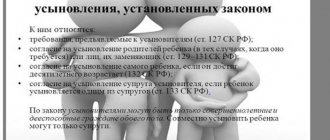International adoption
International adoption in Russia is a form of family placement for orphans, in which they are placed in foster families of foreign citizens or citizens of the Russian Federation living abroad.
According to Art. 165 of the Family Code of the Russian Federation, when adopting Russian children by foreign citizens, the procedure is carried out in accordance with international legislation and the legislation of the country in which the adoptive parent is registered or lives (for stateless persons) at the time when he submits the corresponding application to the court.
At the same time, the principles of international adoption oblige the adoptive parents and the country of his residence to ensure that the adopted child observes the same standards and guarantees to which he would be entitled if adopted within his home country.
It should be taken into account that the adoption procedure is different for Russian citizens and foreigners - the former are given priority in this case. At the same time, those Russians who live abroad must also follow the rules established for foreigners. These rules are dictated not only by Russian legislation, but also by international standards.
Normative base
The legal regulation of adoption with a foreign element in Russia is carried out primarily by Chapter 19 and Article 165 of the Family Code. In addition, the rules for international adoption are determined in accordance with the Convention on the Rights of the Child, to which the Russian Federation acceded back in 1993. In addition to it, Russia has signed, but not ratified, the Hague Convention “On the Protection of Children and Cooperation in the Sphere of International Adoption,” which defines the requirements for the protection of all interested parties in adoption, as well as the general rules for interaction between states in this matter. At the same time, it is necessary to note the European Convention on the Adoption of Children, adopted back in 1967, some of the norms of which are reflected in the Family Code.
It goes without saying that the legislation on adoption of the country of which the adoptive parent is a citizen should also be included in the regulatory framework, since it is according to this that the procedure for accepting a Russian child into a family should take place.
Features of the procedure
The current executive authority may approve a foreigner as a candidate for adoption or impose on him a ban on permanent access to the full data bank. If the decision is positive, he is given the opportunity to familiarize himself with the existing information about each child from the complete data bank. In the Russian Federation, there is currently a complete ban for a foreign adoptive parent in the case of personal appeal to various children's institutions.
Immediately after a thorough review, each potential adoptive parent has the right to meet with the kids. After visiting the children, the prospective adoptive parent is obliged to inform the bank operator about the decision to accept one of them into his family or not.
With a completed application for the adoption process, a foreigner must apply to a judicial authority. Immediately after receiving permission, a copy of the document on the court decision must be sent to the registry office, where the adoption must be registered. Immediately after this, the adoptive parent’s representative or he himself needs to receive:
- original certificate of adoption at the registry office;
- original passport for the baby at OVIR;
- necessary immigration documents at the embassy for the child.
In case of adoption by a foreign citizen, the child retains his original Russian citizenship. Adoptive parents have the right to request citizenship of another country in which they will live, as well as to terminate Russian citizenship. But at the same time, the Russian consulate must necessarily monitor the child’s acquisition of citizenship of another country.
Candidates for adoptive parents
In fact, potential foreign adoptive parents are subject to the same requirements established by Art. 127 SK, as for the Russians. Thus, the adoption of Russian children by foreign citizens is permitted regardless of gender and marital status, by single or married adults. It should be taken into account that persons who are not in a family relationship cannot adopt the same child.
We note that, in addition to the above requirements, according to Art. 124 SK, candidates must have the ability to ensure the full physical, mental, spiritual and moral development of the child. In addition, the requirements include completing mandatory psychological and pedagogical training, which a potential adoptive parent can undergo either in his homeland or in Russia.
Restrictions for adoptive parents
Meanwhile, domestic legislation also defines a list of restrictions, in the presence of which foreigners will be denied the right to adopt a Russian child. Thus, they will deny the right to adopt children:
- an incapacitated foreigner and his spouse;
- persons deprived or limited in parental rights, as well as removed from guardianship and trusteeship;
- former adoptive parents whose right was revoked due to their fault;
- persons without housing and means to support a child;
- convicted of crimes of a sexual nature related to an attempt on life and health, honor and dignity, in relation to public safety and other grave and especially grave crimes;
- have not undergone special training;
- persons suffering from diseases that prevent adoption. The list of relevant diseases was approved by Decree of the Government of the Russian Federation No. 117 of February 14, 2013 (tuberculosis, cancer, infectious diseases, addictions, injuries leading to disability, etc.).
Prohibition of foreign adoption
Not all foreigners can become adoptive parents for Russian children. The ban is established for the following categories of foreign citizens:
- previously convicted persons;
- foreigners who do not have a permanent place of residence and stable income;
- family in same-sex marriage;
- persons who have not undergone special training before adoption;
- persons who have received a negative characterization from the state of their country;
- foreigners with serious illnesses, alcoholism, drug addiction;
- US citizens.
A single foreigner cannot become an adoptive parent if he lives in a country where same-sex marriage is allowed.
Each adoptive parent undergoes a thorough background check. If he does not meet the criteria established by the government bodies of the Russian Federation, then the refusal will follow immediately.
According to statistics, about 30% of orphans are adopted by foreign citizens. Residents of other countries are more willing to take sick children and disabled people into their families than in the Russian Federation.
Basic conditions for international adoption in Russia
Having understood the requirements for candidates, we suggest finding out in what cases adoption by foreign citizens is allowed. In accordance with Part 4 of Art. 124 of the Family Code, the opportunity to transfer a child to be raised by a foreign or Russian family living outside the state arises only when there is no opportunity to transfer him to be raised by a domestic family living in Russia, or to be raised by relatives, regardless of their place of residence and citizenship .

According to the same norm, a child can be put up for adoption after a one-year period from the date of receipt of information about such a child in the federal data bank of orphans.
The transfer of a child to a foreign foster family is possible solely in the interests of the person being adopted, taking into account ethnic origin, religion, cultural traditions, linguistic characteristics, as well as the possibility of continuity in educational and educational traditions.
The legislator did not provide for any specific features of the adoption procedure that would depend on the child’s health status. However, he excluded the possibility of transferring brothers and sisters to different adoptive families, unless this was in their interests (for example, due to health conditions or ignorance of the existence of family ties).
Foreign adoptive parents must undergo all medical examinations and other procedures required by law, as well as provide a package of documents for adoption.
The procedure for adopting a foreign child by Russian citizens
In order to begin the adoption process, you must submit an application about your desire to become an adoptive parent to a special body of the state whose citizenship the minor has. In each country, different organizations deal with adoption issues, so it is worth finding out about this in advance from the Russian Embassy.
The following list of documents must be provided along with the application:

- copies of identification documents of candidates for adoptive parents: marriage registration certificate or other form of document confirming this fact;
- medical opinion on the candidate’s health status;
- a certificate of the applicant’s financial condition and lack of criminal record;
- an obligation to register a minor from the Russian social protection authority if the issue of adoption is resolved positively.
The list of documents may differ depending on the state; the exact list can be found on the websites of the organization that controls adoption processes in the country.
After submitting documents, conversations with a candidate for adoptive parent must be held with various social service specialists who find out the degree of readiness of the candidate to become an adoptive parent and his mental stability. Each specialist draws up a report based on the results of the conversation.
The entire verification process can take from 1 to 6 months. Based on the results of the check, permission or refusal to adopt is issued.
After permission to adopt is received, the process of selecting the child itself begins, whom the couple will accept into their family.
Candidates are sent to a social institution where children without parental care live. There, the relevant employees provide questionnaires. After candidates for adoption choose a child, a personal meeting is arranged for them.
Several meetings may be organized to adapt the baby. A social worker is always present at the meeting, who determines how suitable the child and the candidates for his parents are for each other, and whether there is mutual understanding between them.

After each meeting, a social service specialist fills out a report on the compatibility of the future parents and the child. After analyzing the reports, a decision is made to allow or refuse. The reason for the refusal must be stated.
If adaptation is successful and contact has been established with future parents, the paperwork process begins. In all countries this procedure is approximately the same.
All registration is carried out on the basis of previously received documents and conclusions of social services. Once all permissions have been received, the adoptive parents can pick up the baby. Upon arrival in Russia, a foreign child is registered with a family.
At the place of registration, social authorities will draw up the necessary paperwork based on all documents received in the country of adoption. In some cases, it is necessary to visit the embassy of the country where the minor came from in order to register the couple accordingly.
Expert opinion Maria Lokshina Family law expert since 2010
In all cases of adoption, the secrecy of adoption must be observed.
Legalization of documents required for adoption
All documents provided for adoption by a foreigner, in accordance with clause 43 of the Procedure approved by Order of the Ministry of Education and Science of the Russian Federation No. 101 dated February 17, 2015, must be legalized in the prescribed manner and translated into Russian. This translation, in turn, is certified by consular or other diplomatic missions of the Russian Federation in the state in which the foreigner is registered or resides, or by an ordinary Russian notary.
Legalization means confirmation that documents received abroad of the Russian Federation comply with the legislation of that country. The legalization procedure consists of certifying the signatures and seals of authorized persons and government bodies, as well as the compliance of the contents of the document with the requirements of the legislation of the country in which it was issued.
Methods of legalization
There are several ways to legalize foreign documents, but only two of them are relevant for adoption in Russia:
- Consular legalization. In accordance with Art. 27 Federal Law No. 154 of 07/05/10, legalization is carried out by a consular official of the consular office of the Russian Federation in the state of residence of the foreigner, if they are intended for presentation on the territory of the Russian Federation and do not contradict its legislation. Such an institution is considered to be a consulate general, consulate, vice-consulate or consular agency. The procedure for such legalization is determined by the Administrative Regulations approved by Order of the Ministry of Foreign Affairs of the Russian Federation No. 9470 dated June 18, 2012.
- Apostille affixing. This option of legalization is considered simplified compared to consular legalization. Its application is permissible in relation to documents issued by countries in whose territory the 1961 Hague Convention is in force. An apostille does not require any other certification or legalization and is recognized by the official bodies of all states parties to the convention. According to it, the apostille is affixed by government agencies of the state in which it was issued.
In addition, an apostille may not be required if the foreigner’s country of residence has concluded an agreement with Russia on the mutual recognition of official documents. In this case, only a certified translation of documents into Russian will be required. These countries include most members of the CIS, Albania, Bulgaria, Hungary, Greece, Georgia, China, Poland, Czech Republic, Croatia and others.
Regulatory regulation of the issue
Citizens of the Russian Federation, foreign nationals, stateless persons (stateless persons) can become adoptive parents of Russian children left without the care of biological parents. The procedure is international in nature if a foreigner is an applicant for legal representation.
The process is regulated by many interstate and local acts. International legal documents include:
- UN Convention, Hague Convention;
- Declaration of the Rights of Minors;
- European Convention;
- Geneva Declaration of the Rights of Children.
The basic procedures and concepts are established in the RF IC. Also, local acts establishing the procedure for a person to obtain the status of an adoptive parent are:
- Code of Civil Procedure of the Russian Federation;
- Federal Law dated July 24, 1998 No. 124;
- Federal Law dated June 24, 1999 No. 120;
- Federal Law dated December 21, 1996 No. 159;
- Federal Law dated April 16, 2001 No. 44;
- Federal Law dated April 24, 2008 No. 48.
UN Convention
This act describes the basic principles of the transfer of children left without the care of their natural mother and father. The document was adopted in 1998. A year later it was ratified by Russia. The participating states guarantee direct participation in resolving issues through the work of authorized government bodies.
Guardianship authorities are required to determine the status of the minor and carefully study the documentation submitted by the candidate for the role of legal representative. The papers are reviewed to determine whether the information contained in them corresponds to the real state of affairs. Based on the results, a decision is made to transfer the minor to an adoptive parent or to provide a reasoned refusal.
Hague Convention
This act was adopted in the spring of 1993. According to the document, the E&P authorities of the donor country (where the person in need of adoption lives) must determine the compliance of the foreigner - an applicant for registration of status - with the personal interests of the minor. The Convention establishes the need to carry out the procedure free of charge. Thus, at the international level, a fight has been organized against the selfish motives of persons wishing to benefit from the legal representation of a minor.
Important! Despite the importance of the norms, this act does not have legal force in the Russian Federation. Until now, it has not been ratified by Russia.
European Convention
The oldest of these conventions was signed on 04/24/67. The document was adopted by the states that were members of the Council of Europe. The purpose of the adoption of the act was to unify the process of transferring minors into guardianship and trusteeship between different countries.
According to this legal act, adoption is allowed only if an appropriate decision is made. Thus, courts or administrative authorities must necessarily participate in the process.
International legal treaties
This type of regulatory legal acts is needed in order to simplify the process of accepting a child from another state into a family. In addition, the adopted norms are aimed at eliminating conflicts of legal acts operating in the participating countries.
As an example, we can cite the agreement signed by the Russian Federation and Italy at the beginning of the 2000s. Its goal was to simplify the procedure for transferring minors left without parental care at the interstate level. Adoptive parents are required to comply with the rules established in their country and the country of the child’s citizenship. Therefore, in the absence of such agreements, it is impossible to carry out actions correctly.
Procedure for adoption by foreigners
It should be taken into account that the procedure for the adoption of Russian children by foreigners is somewhat different from the procedure provided for citizens of the Russian Federation. Let's look at this process step by step.
Where to contact
A foreigner who wants to adopt a Russian child has the right to obtain information about children who can be adopted, for which he needs to contact any executive body of the constituent entity of the federation, which is the regional operator of the bank about orphans. As a rule, this is a guardianship and trusteeship body.
It is unacceptable for candidates to apply directly to orphanages and other organizations where orphans are kept.
Potential adoptive parents can contact the operator personally or do this through a representative office of a foreign government agency or organization that has received permission to carry out adoptions in Russia. Information about such a citizen, in accordance with clause 36 of the Procedure approved by Order of the Ministry of Education and Science of the Russian Federation No. 101 dated February 17, 2015, is subject to recording.
The provision of this information is carried out exclusively in person to foreigners. In addition, they must get to know the child, establish contact with him, study his documents, including a medical report on his health, which is confirmed by their personal signature.
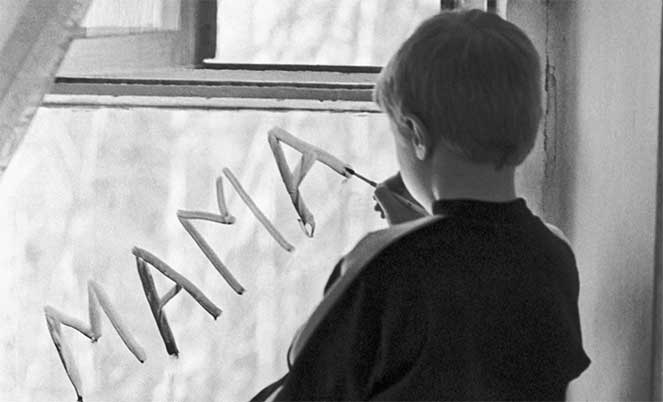
Required documents
When contacting the operator of a data bank about orphans, a potential adoptive parent must submit a package of legalized documents, which, according to clause 39 of this Procedure, includes:
- identification document;
- statement of desire to adopt a child with a request to provide data bank information about children;
- obligation to register the child at the Russian consulate in the country of residence;
- the obligation to provide for verification of the child’s living conditions in the event of adoption;
- a conclusion from a competent foreign authority confirming the living conditions of a foreigner and his ability to adopt a child, along with photographic materials about the family;
- the obligation of the above-mentioned foreign body to regularly monitor the registration of the child, as well as the further conditions of his life, with the provision of relevant reports;
- a document confirming the non-recognition of same-sex marriage in the country;
- a document confirming the presence of a license from the competent authorities that issued the above documents;
- documents confirming completion of adoption preparation courses and documents confirming the availability of licenses from the organization that provided such training.
As a general rule, all documents are accepted within a year from the date of their issue or preparation.
Terms of consideration
According to clause 44 of the Procedure, consideration of the merits of the application and documents submitted by the foreigner is carried out within ten days from the date of their receipt, after which the operator of the data bank on orphans provides the foreigner with a profile of the child corresponding to his stated wishes. If there are no grounds for providing data, the operator returns the documents within the same period indicating the reasons for the refusal.
Adoption Cost
Regardless of the citizenship of the foreign adoptive parent, the adoption procedure is free of charge. Any remuneration to officials and officials in this context is prohibited and is perceived as unjustified benefit, which is a crime. However, the services of foreign adoption organizations, which a candidate for adoption could use, are not regulated by domestic legislation, and therefore may well be provided on a paid basis.
The cost of these services is determined by the legislation of the country to which they relate. As stated in open sources, the total cost of the procedure for adopting a Russian child can be 40-50 thousand US dollars.
Making the decision to adopt
Completing the above procedures is not enough for adoption - the final decision is made by the court. However, in contrast to transfer to a Russian foster family, according to Part 2 of Art. 269 of the Code of Civil Procedure, a decision regarding a potential foreign adoptive parent is made by the Supreme Court of a constituent entity of the Russian Federation (regional, territorial, autonomous region or district, republican), depending on the place of residence of the adoptee.
Together with the application and the general list of documents specified in Art. 271 of the Code of Civil Procedure, the foreigner also submits to the court a conclusion on the conditions of his life, the consent of the legal representative of the child and himself (if required by law), as well as the competent authority of the state, if such consent is required by the legislation of this country. If necessary, the court may request other documents. All specified documents must be legalized and translated into Russian.
Based on the results of the review, if there is a positive decision, it becomes legally binding within 10 days. After this, the adoption is subject to state registration, and the adoptive parents personally pick up the child at his place of stay.
Assistance in adoption by foreign citizens
Foreign adoption agencies operate in each region. These are specialized organizations that provide assistance to foreign candidates.
The agency provides support for the adoption procedure from the moment the contract is concluded until the provision of reports on the adopted person. The service is provided on a paid basis.
Important! Candidates are not required to use the services of an agency.
In practice, the agency’s services greatly simplify the procedure for foreign adoption. Specialists provide the services of a translator, a notary, and accompanying an agent when visiting an orphanage, the guardianship department and the court.
The foreign adoption procedure takes a long time. The waiting period can be 1-2 years + the adoption process (meeting the child, preparing documents, court) from 10 to 18 months.
Post-adoption control
After completing the adoption procedure, the state exercises control over the living conditions and upbringing of adopted children in order to protect their rights and legitimate interests. Such control is carried out through consular registration and receiving reports on the living conditions of adopted children.
Consular registration
According to clause 1 of the Rules, approved by Decree of the Government of the Russian Federation No. 275 of March 29, 2000, foreign adoptive parents are required to register their adopted child with consular registration within 3 months from the date of their departure. Registration is carried out within the consular district or diplomatic mission in which the adoptive family lives. Control of the statement is carried out by an authority of a foreign state that has accepted the corresponding obligation, after which it sends the corresponding certificate to the guardianship and trusteeship authorities of the subject of the federation.
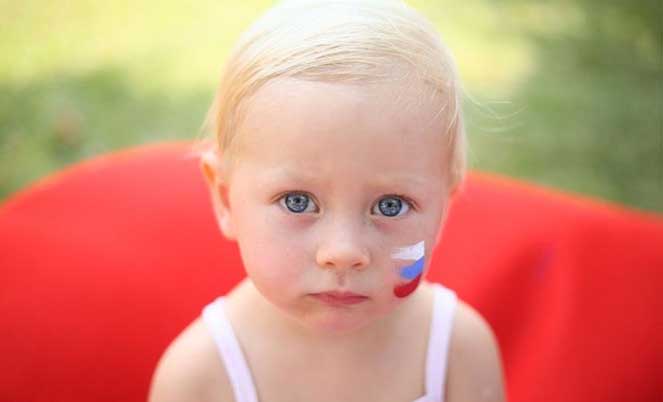
When changing the child’s place of residence, the adoptive parent is obliged to inform the consul with further registration at the new place of residence where the child remains until he reaches adulthood.
Providing reports
In addition to consular registration, the competent foreign authority, which has given a written undertaking, monitors the child’s living conditions and sends information to the guardianship and trusteeship authorities of the subject of the federation. They reflect data on health, learning, development, and family relationships.
Similar reports are compiled after 2, 5, 11, 23 and 35 months after adoption, and thereafter every 23 months until the adopted child reaches the age of majority. These documents do not require legalization.
Requirements for a foreign adoptive parent
The main condition for applying for permission to place children in a family is the accuracy of the information provided to competent persons. It makes no sense to deceive and dissemble for selfish purposes, since sooner or later the deception will be discovered, the child will be taken away and the adoption will be canceled, and the adoptive parents will be punished.
The grounds for refusal may be different, most often it is the inaccuracy of the data provided, the unfavorable social and economic situation in the state of the adoptive parent, or the non-compliance of living conditions and income with the required conditions.
Also, according to Russian laws, the age of a potential parent must be at least 16 years older than the child, and most importantly, the citizen must be over 18 years old.
When preparing documents, you need to make two trips to the territory of the Russian Federation for personal presence in the courtroom and to choose a baby.
For the next four years after adoption, parents must provide an annual report on the circumstances of the family's life with evidence (photos, video footage).
Legal consequences of adoption
According to Art. 137 of the Family Code, the fact of adoption equates adoptive parents and adopted children to blood relatives, that is, after adoption, personal and property rights and obligations established between parents and children arise between the parties. This applies to housing, inheritance, family, maintenance rights and other rights that arise by law between parents and children.
At the same time, adopted children, with some exceptions, lose any rights and responsibilities towards their biological parents. As an exception, at the request of one of the biological parents or grandparents, if there are compelling reasons for this, the relationship with them can be maintained.
However, these rules are established by Russian legislation, so the legal consequences of the adoption of Russian children by foreign citizens may differ. Yes, Art. 165 of the Family Code determines that adoption is carried out in accordance with the legislation of the country of which the adoptive parent is a citizen. In this context, it is quite logical to assume that the legal consequences should be determined in accordance with the laws of the country of origin of the adoptive parent.
Procedure for placing a child in a foreign family
The adoption procedure begins with obtaining permission and the right to be an adoptive parent, to provide care and education for stepchildren.
Then, after foreign citizens receive from the federal data bank about children left without parental care, the necessary information about possible adoption options, and register with other interested persons, acquaintance with the orphans begins.
The introduction and selection of a child is carried out approximately in this order:
- Personal acquaintance, establishing contact.
- Familiarization with documents.
- Written confirmation of the familiarization.
About the results of the choice made regarding the offspring, the adoptive parents draw up a statement (notification) for the federal guardianship authorities.
Pre-trial preparation consists of selecting a child and collecting all the papers provided to the court to issue a determining word:
- copies of adoptive parents' passports;
- a copy of the marriage certificate;
- a copy of the birth certificate (for a single adoptive parent);
- divorce certificate (if the couple has not been in a relationship for more than one year);
- consent to adoption by the second spouse (if the adoptive parent is one spouse);
- medical examination of potential parents.
Consideration of the case on the adoption of children by foreign citizens, all the pros and cons of this decision, is carried out in the manner of legal proceedings with the participation of all interested parties and the child himself, if he has reached the age of 14 years.
The child’s opinion is taken into account from the age of 10.
The courtroom is attended by the adoptive parents, the prosecutor, persons authorized for children's rights, the child, if necessary, and court staff. The court decision can be appealed within 10 days from the moment it was made by the authorities.
Features of adoption for children
It should be noted that a number of features arise in relation to the adoptee. We propose to consider the most pressing issues of adoption of children by Russian and foreign citizens living abroad. They, in particular, relate to citizenship, translation of documents and other aspects.
Citizenship of the adopted person
According to the general rule established by Art. 26 of the Federal Law “On Citizenship of the Russian Federation”, a child who is a citizen of the Russian Federation adopted by foreigners retains his Russian citizenship. However, at the request of foreign adoptive parents or one adoptive parent, if he is single, the Russian citizenship of the adopted person may be terminated in a general manner, provided that he does not then become stateless. This standard is also determined by the provisions of the European Convention on the Adoption of Children.
Thus, a prerequisite for the loss of Russian citizenship by an adopted child is the presence in the national legislation of the state in which the adoptive parent lives of mechanisms for acquiring citizenship by an adopted child.
As practice shows, this is possible, depending on the country, in two ways: by registering the status with the competent authorities or by reaching (or not reaching) a certain age. For example, in the USA, a child adopted in Russia automatically acquires citizenship, and in Sweden - only if the adopted child has not reached the 12th birthday.
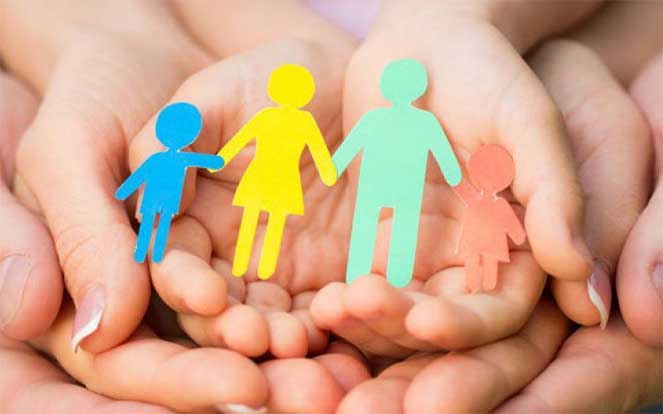
Translation of personal documents
The procedure for an adopted child to become a citizen of another country is provided for by its legislation. According to generally accepted rules, all documents of candidates for citizenship, regardless of the country, must be translated into the state language. The accuracy of the specified translation, and sometimes the translator’s signature, is subject to notarization.
Consent to adoption
Features of the adoption of children in Russia also include the need in certain cases to obtain the child’s consent to adoption. In particular, Art. 132 of the Family Code prescribes the need to obtain such consent from all adoptees who have reached the age of 10. The only exceptions are cases where the child, before adoption, lived in the adoptive parent’s family and considered him his own parent. However, in cases of international adoption, according to common judicial practice, judges often ask and take into account the opinion of the adoptee who has not reached the age of 10.
In what cases can this be refused?
Russian legislation zealously protects the interests of orphans not only when they are adopted by citizens of other countries, but also when establishing family relationships between a child from an orphanage and Russian citizens.
Today, according to the norms of the Family Code, the following categories of citizens are prohibited from adopting children:
- persons who have a criminal record (Article 86 of the Criminal Code);
- people with drug addiction disorders;
- citizens whose health condition is an obstacle to caring for a child or a direct threat to his health (according to the list of diseases approved by Resolution No. 5421);
- people who have been deprived of parental rights in relation to their own or adopted children;
- citizens of Russia who do not have housing or if the area of housing is insufficient for a child to live;
- unemployed persons or citizens whose financial condition does not allow them to provide optimal child support;
- people who have been convicted of child abuse;
- citizens declared incompetent or married couples where one of the spouses is incompetent;
- adoptive parents who have not received the child’s consent to adoption (for children over 10 years old);
- married persons, under conditions where one of the spouses does not agree to accept the child into the family;
- adoptive parents whose age difference in relation to the adopted child is less than sixteen years.
Ban on adoption of Russian children
When it comes to the ban on the adoption of Russian children, we traditionally mean restrictions imposed on citizens who have entered into same-sex marriages, citizens of countries where such marriages are legalized, as well as citizens of the United States of America. To fully understand the problem, let's consider these prohibitions separately.
Restrictions for same-sex couples
According to paragraphs. 13 clause 1 art. 127 of the Family Code, same-sex married couples whose union in the state of which they have citizenship is recognized as a marriage and secured in the manner prescribed by law cannot be adoptive parents of Russian children. Moreover, since 2013, single citizens of states where same-sex marriages are legalized are also deprived of this right, regardless of their sexual orientation. Interestingly, the court can refuse to adopt even foreigners who are in a traditional marriage if same-sex marriage is legalized in their country.
Thus, during the court hearing, the court finds out whether the legislation of the state to which the candidate adoptive parent belongs allows the transfer of the child to another family, and also whether he has an agreement with the Russian Federation on cooperation in matters of adoption. If the legislation provides for such a possibility, but there is no agreement, the court will refuse to satisfy the request of the foreigners.
Restrictions for US citizens
The restrictions on the ability to adopt Russian babies introduced for US citizens, as well as the ability to carry out adoption activities introduced for American organizations, deserve special attention. They were introduced in accordance with Federal Law No. 272 of December 28, 2012, which received the unofficial name of the Dima Yakovlev Law - a child who died in an American foster family due to the negligence of his father. It should be noted that, thanks to biased reporting in the media, the public consciousness has formed the opinion that this law was adopted solely for the purpose of banning adoption by Americans. In fact, the law provides:
- Creating a list of Americans guilty of violating human rights and freedoms and Russians in particular.
- Determination of measures of influence on persons included in this list.
- Determination of the prohibition in relation to these citizens to dispose of property on the territory of the Russian Federation.
- Suspension of the activities of companies and organizations in the Russian Federation under their control.
- Suspension of the powers of persons in the management bodies of organizations registered in the Russian Federation.
- Suspension of non-profit organizations participating in the political life of the Russian Federation and accepting gratuitous assistance from Americans and American companies.
- Prohibition for citizens of the Russian Federation who also have US citizenship to participate in organizations taking part in the political life of the Russian Federation.
- A ban on the transfer of Russian children to Americans for adoption.
As you can see, the ban on adoption is only one of the measures, and far from the most important. However, according to the decision of the European Court of Human Rights dated January 17, 2021, the ban on the adoption of children by Americans was declared illegal.
The ECHR found that this provision of the law discriminates against Americans in the right to adoption: in particular, 16 complaints were filed with the court from US citizens who were deprived of the right to adoption after they had established contact with children. The court pointed out that the Russian law contradicts Articles 8 and 14 of the European Convention on Human Rights. However, official Russian authorities did not agree with the decision and will appeal it.
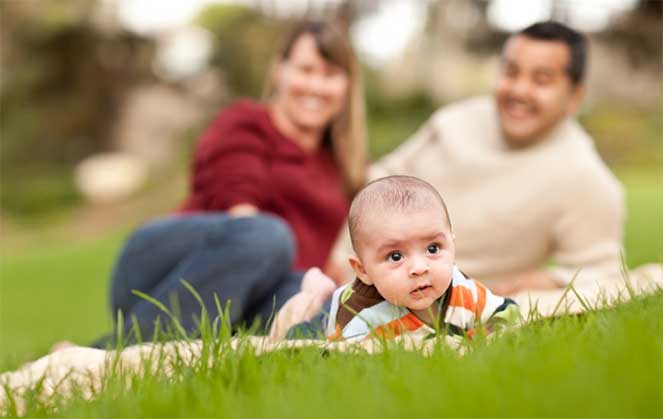
Requirements for foreign adoptive parents
Spouses whose relationship is officially registered can accept a child into the family. Adoption is allowed for one person. There are quite strict requirements for foreign adoptive parents. They cannot adopt a child if:
- Are married to a person recognized as fully or partially incompetent;
- They cannot perform legally significant actions;
- Parental rights have been deprived or these rights have been limited;
- They were already adoptive parents, but the adoption was canceled in court;
- Released from care due to failure to fulfill legal obligations;
- Suffer from serious illnesses (tuberculosis of groups I and II, cancer, some infectious diseases, mental disorders, alcoholism, drug addiction, or have a disability of the first group);
- They do not have their own home;
- They do not have the means to provide for the child;
- Have been previously convicted or are under investigation;
- Have an unexpunged criminal record;
- Have not completed training (courses for foster parents).
Judicial practice on international adoption
Judicial practice in cases of international adoption is quite extensive, which, firstly, is due to the mandatory participation of courts in this process, and secondly, to the many controversial issues that arise in this case. The Supreme Court annually summarizes judicial practice on adoption by foreigners, stateless persons and Russians living outside the Russian Federation. Based on these reviews, you can determine the pros and cons, advantages and disadvantages of this process.
Main questions
From year to year, the Supreme Court records a decline in the interest of foreigners in the issue of adoption of Russian children. Thus, if in 2011 the number of international adoptions exceeded 3 thousand, then in 2015 it decreased to 663. And this despite the fact that the courts rejected foreigners in only 7 cases. But the number of adoptions by Russians remains consistently high: the number of cases from year to year does not decrease below 14 thousand processes.
According to the judges, one of the main problems that arise during judicial review is the applicants’ failure to comply with the requirements for the form and content of adoption applications, as well as for the list of necessary documents. In addition, the courts have repeatedly found violations of the conditions for transferring children to foreign foster families.
It often turned out that the guardianship authorities did not take sufficient measures to identify the relatives of orphans, and if they were found, in the overwhelming majority of cases they refused to accept the children for upbringing, citing their financial situation. Often, courts considered the possibility of adopting brothers and sisters by different persons, but there were also cases when adoptive parents, having learned that the adopted brother or sister had a brother or sister, expressed a desire to adopt both children.
In addition, the courts, when considering cases of international adoption, resolved issues relating to:
- the child's views regarding adoption;
- the ability of adoptive parents to ensure the full development of the child and their financial capabilities;
- undergoing special training before adoption;
- the health status of the adoptive parents;
- the presence of contact between children and adoptive parents.
The most glaring problem that arose in court hearings was the lack of awareness of potential adoptive parents about the state of health of the adopted child. In a number of cases, this became the reason for the said persons to withdraw their application for adoption.
Cancellation of adoption
As follows from judicial practice, cases of cancellation of international adoption in relation to Russian adopted children in order to protect their interests are extremely rare. However, there have been cases when, due to inadequate research into the circumstances of communication between candidates for adoptive parents and a child, and incomplete study of their character and personal and other characteristics, the adoption was canceled by the adoptive parents themselves. For example, in 2010, an American adoptive mother, who had adopted a child from Vladivostok a year earlier, sent him on a plane to Russia with a note about abandoning him.
A more “recent” case occurred in October 2015, when Spanish citizens, in respect of whom a decision was made to adopt a child from Volgograd, just a few days after the adoption, asked for its cancellation. The reason was that after the decision was made, the boy moved away, ignored his adoptive parents and showed an independent and strong character.
According to a representative of Spanish citizens, their complaints about the character of the child, in particular, related to the discrepancy between the interests of the spouse and the child. So, when they invited the child to play board games or draw, he expressed a desire to run or play ball. Of course, the court canceled such an adoption, and also sent information to the Ministry of Education and Science about the inadequate preparation of adoptive parents by representatives of a foreign adoption association.
Statistics on this issue
Despite the negative attitude of many people towards international adoption, statistics show that children with physical and mental disabilities find shelter in foreign families, while among Russian citizens such orphans are not of interest for adoption. This fact is easily explained by the need for disabled children to periodically undergo a course of treatment, and social security is possible only when the child is taken into custody.
According to statistics over the past year, 3,355 children were adopted by citizens of other states, eighteen percent of them were children with physical and mental defects.
During the same period, Russian citizens became adoptive parents for 7,082 children, of whom only three percent are carriers of certain diseases. Compared to previous years, the number of adoptions of orphans by foreigners has decreased significantly - this is due to the adoption of a law banning adoption to US citizens.
Adoption carried out at the international level is a rather controversial phenomenon; it is difficult to judge its positivity or negativity; the important thing is that residents of other countries will adopt our children as long as they need parental love. Every child needs family comfort, and if we are not able to protect Russian children from a lonely existence in orphanages, it is not rational to condemn the right of foreigners to adopt our orphans, they have the right to be happy
Every child needs family comfort, and if we are not able to protect the children of Russia from a lonely existence in orphanages, it is not rational to condemn the right of foreigners to adopt our orphans, they have the right to be happy.
Didn't find the answer to your question? Find out,
Rights and obligations
- Parents are given the right to change all the child’s data in order to protect his psychological state and protect him from worries. This right is protected by the law of our country.
- From this moment on, the parties are legally recognized as parents and child. That is, parents can represent their child in court, as well as be responsible for his actions before society (you can learn about the responsibilities and rights of an adopted child in a foster family here).
- Parents undertake to provide normal maintenance.
Attention! Failure to comply with any specified point, failure to comply with one’s rights and obligations, becomes an aspect of holding a citizen accountable.
The cancellation of the act of adoption occurs in court (read about how the adoption of a child is canceled and what consequences should be expected, and from this article you will find out who can be the initiator of the termination of mutual obligations).
Who is prohibited from adopting a child into the family?
Not everyone will be able to obtain the status of an adoptive parent. For example, citizens living together must present a document confirming the registration of their relationship. If the persons are cohabitants, then only one of the partners can carry out the procedure.
In addition, adoption is not allowed if:
- incapacity (including the presence of such incapacity of the spouse);
- resolutions on deprivation (limitation) of parental rights;
- decisions to forcibly lose the status of a guardian (adoptive parent);
- health problems that do not allow caring for and raising a minor;
- convictions for criminal offenses involving harm to human life and health, unexpunged (current) convictions.
In addition, a person must undergo special training and receive the appropriate certificate. If we talk about health problems, the legislation identifies the following ailments, which cancel out the candidate’s chances of having the application approved by the E&P authorities:
- tuberculosis, other infectious diseases;
- oncology;
- mental illnesses;
- alcoholism (drug addiction);
- diseases that led to the establishment of the first two groups of disability.
Important! Each applicant must have a sufficient level of financial support to satisfy the interests of the child. If the applicant does not have a place of employment or place of residence, then he will not be able to adopt a minor.



